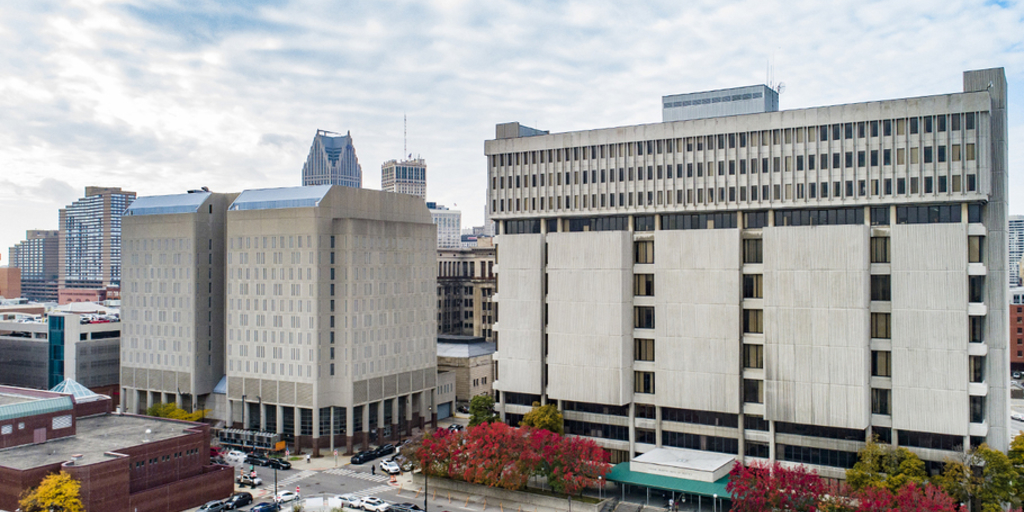It came to this starting more than a dozen years ago, when Wayne County, under then-Executive Robert Ficano, began building a new jail next door to the current criminal justice complex on a 7.2-acre site at Gratiot Avenue and I-375.
The goal? To consolidate existing facilities into a new, modern one at the eastern edge of downtown, to the consternation of many in the business community — including Gilbert — wanting it anywhere but the central business district.
It didn’t take long for that project to go sour, as cost overruns shackled construction and county officials were left scrambling for some way to salvage the half-built eyesore — or tear it down.
What was supposed to be a $220 million new jail ended up with a final projected cost of $391 million, and ultimately, under current Wayne County Executive Warren Evans, the county opted — after a lengthy debate and analysis — to wipe the site clean and start anew, with Gilbert’s team developing the new jail complex a couple of miles outside of downtown.
With the county on the verge of insolvency at the time, it was in no position to simply absorb the exploding costs. So it crafted an agreement whereby it would pay $380 million from about $50 million remaining bond proceeds from 2010 “fail jail” construction, new bonds and general fund revenue. The remainder of the cost was to be covered by a Gilbert affiliate of his Rock Ventures LLC.
Bridge Detroit, citing a budget presentation from earlier this month, said that as of February, the project cost $670 million. The county was to pay $502.8 million, with Gilbert and Rock Ventures LLC covering $167.9 million plus other overruns.
James Heath, corporation counsel for Wayne County, said on Wednesday that final costs were still being determined and a variety of factors need to be considered before a final number is determined.
For example, in 2018, the Wayne County/Rock agreement called for Rock to get up to $30 million in parking revenue from lots surrounding the East Warren/I-75 site, with the county getting any revenue beyond $30 million. The county has since bought out Rock from that portion of the agreement.
“We wanted to take control of the parking in that area, which would allow us to open up lots and do what we are doing now in providing parking at no cost to our employees,” Heath said.
On March 18, Rock Ventures “turned over” the new East Warren/I-75 criminal justice complex to the county, with some punch list items — generally small things in the grand scheme of a half-billion-dollars worth of new construction — left to be completed. That triggered a six-month window in which the county needs to be out of its downtown facilities.
Bringing us to today. Mostly.
As it emerged that the Ficano-era project had become a boondoggle, developers and others — ranging from Gilbert to the owner of the Penobscot Building — floated proposals for the so-called “fail jail” property, ranging from a Major League Soccer stadium and sparkling new offices, residential and hotel skyscrapers to, later, a University of Michigan graduate school campus.
Obviously, none have come to fruition and the site still sits fallow, although Crain’s reported earlier this week that Gilbert envisions at least one future use for what is now being branded as an “innovation district” site to be a new five-story, 211,000-square-foot medical research hub.

